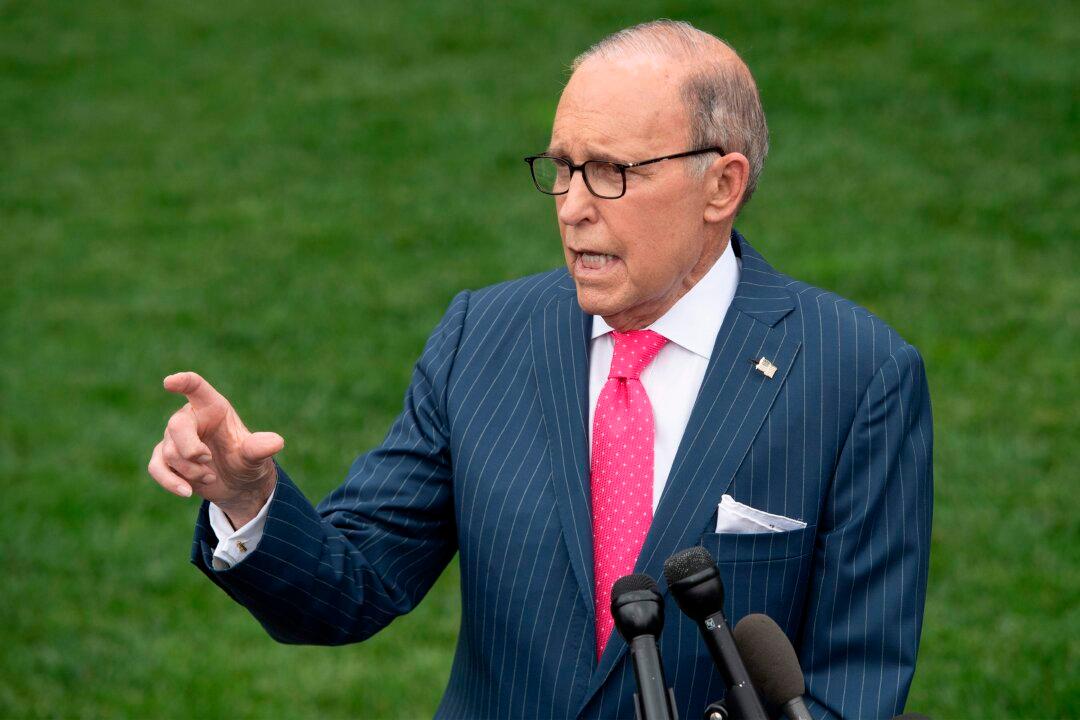The United States and China face a challenging road ahead to resolve core U.S. concerns over the regime’s longstanding unfair trade practices, White House chief economic advisor Larry Kudlow said on July 9.
During an interview with CNBC’s Capital Exchange program on July 9, Kudlow said that while he preferred to take an optimistic view of the future, and believed a deal was possible, the remaining issues yet to be resolved presented a “tough” situation for both sides.





